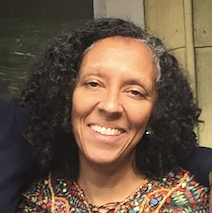Tag Archive: Social Change
June 25, 2014
“A beautiful question is an ambitious yet actionable question that can begin to shift the way we perceive or think about something – and that might serve as a catalyst to bring about change.”
– Warren Berger

One of my favorite reads of the past six months is Warren Berger’s A More Beautiful Question: The Power of Inquiry to Spark Breakthrough Ideas. It strikes me as being an important read for any social change agent. Early on, Berger begins with the following provocative statement, that rings true to personal experience:
“Well meaning people are often trying to solve a problem by answering the wrong question.”
In some cases this is because they have not paused long enough, if at all, to consider the underlying question their efforts are trying to solve. Or, as my colleague Cynthia Parker has said, they are “solving for solution,” essentially promoting and/or fighting over their own preferred approaches. And so they continue to offer the same old, ineffective and outdated, approaches or products. This is especially problematic in a time of such change and flux, when we can’t fall back reliably on what we already know. Read More
June 24, 2014
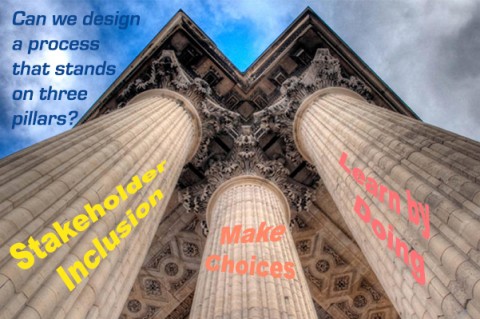
You might have picked up that I’m down on too much process and too much meeting. It’s a funny place for someone that makes a living facilitating. It is part of a semi-conscious effort to look at the opposite of my core assumptions and seek the wisdom there.
Read More
June 3, 2014
If you are a regular reader you’ve heard me talk about the Barr Fellows. It is one of the most powerful experiments in developing a leadership network within a geographic context – the City of Boston. I have the privilege of being on the design and facilitation team for this remarkable project.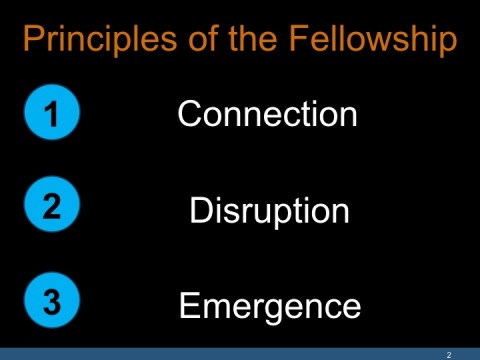 Read More
Read More
May 19, 2014
This might be the most important seven minutes of your week. For, me, it was one of those beautiful moments when understanding history – a hidden story that isn’t widely told – helped me think much more clearly about an important contemporary issue. Aviva Chomsky, author of “Undocumented: How Immigration Became Illegal,” explains how recently the concept of “illegal immigration” was developed and how it was developed specifically as a way to discriminate against Mexican workers in the U.S. At the time, visas were not needed to enter the country; people from Mexico, many of whom returned seasonally, were considered workers not immigrants; people from China and other Asian countries were not allowed to enter the U.S. at all; and only people from Europe were considered “immigrants.” And, preceding all of that history of course, there were a couple hundred years of European settler/ immigrants who carried no documentation and were not considered “illegal.”
Link to audio
May 7, 2014
“We see the world not as it is, but as we are.”
-The Talmud
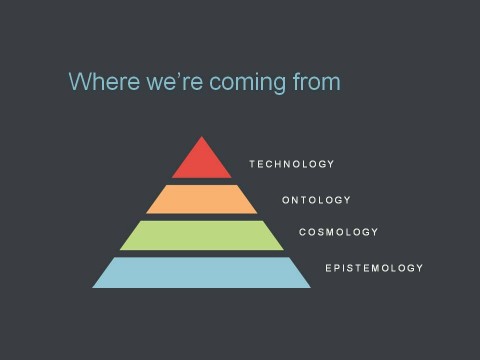
Last week I had the privilege of being part of faculty for the launch of the Presidio Institute’s Cross-Sector Leadership Program in San Francisco. My role in representing IISC was to lead conversation around core concepts and frameworks related to the design and facilitation of complex multi-stakeholder change processes. The last day I partnered with Jennifer Splansky Juster from the Collective Impact Forum to do a deeper dive around collaborative process design, with Jen offering more guidance around the specifics of taking a “collective impact” approach. During this session, I invited Fellows to step back and take a deeper view of their cross-sector change work by reflecting on the framework above, the essence of which I have inherited from the thinking and work of Carol Sanford.
This framework offers that our chosen change methods are always grounded in an underlying belief system about what we hold to be true about humanity, the world and what constitutes “knowing.” Not being aware of or transparent about this can get us into difficulty when it leads to mixing and matching techniques/methods that may contradict one another, or when we are not operating from the same system of beliefs as others. Here are some questions I offered the CSL Fellows in consideration of their cross-sector work: Read More
April 24, 2014
“Narratives can create a very different world, one where pressure evolves from a source of stress to a source of excitement, calling us to achieve even more of our potential, both as individuals and collectively.”
– John Hagel

Today’s post gives a big tip of the hat and bow of gratitude to John Hagel for his work on narrative, which I believe has much to offer networks for social change. First a little story . . . Read More
April 22, 2014
Ceasar McDowell, President of the Interaction Institute for Social Change and Professor of the Practice of Community Development at MIT brings the concept of a “Question Campaign” to our emerging work on Cities.
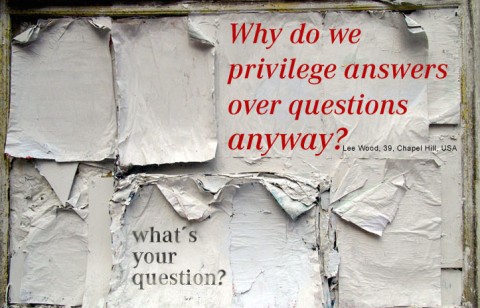
The question campaign is anchored by the premise that “asking questions invites people into conversation, rather than shutting down discussion by giving only answers.” Question campaigns “generate dialogue as a crucial first step in creating actual change on the ground.” Read More
April 16, 2014

Photo by Kevin Doyle. Some rights reserved.
Conferences and other large in-person convenings provide a great opportunity to launch and further develop networks for social change. As has been mentioned previously on this blog, and borrowing from the work of Plastrik and Taylor, at IISC we see networks for change as developing in various inter-related “modes,” including connectivity, alignment, and action. Paying attention to multiple dimensions of success can inform a variety of approaches to support a more robust, trust-bound, commonly-oriented, self-organizing and (as needed) formally coordinated collective.
Here are some methods to consider for convenings to help feed and grow networks for social change: Read More
April 1, 2014
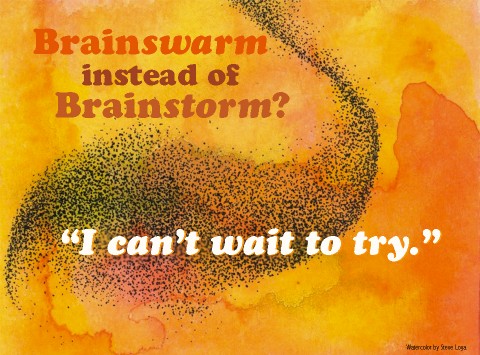
The recent barrage against the effectiveness of brainstorming has been a bit hard for those of us who are grounded in the Interaction Method. But evidence matters, doesn’t it? I know that Curtis has talked about the limits of brainstorming a couple of times in this blog. Read More
March 31, 2014

This post continues a conversation that Curtis Ogden started last week. (Process is Where Change Happens) It’s a conversation we’ve been having for years at IISC. On one hand, we recognize the importance of understand how thinking shapes the systems we produce and reproduce. And it’s important to understand that inequities and oppression are not just a matter of thinking that can be changed simply by changing our minds. I’ve often been impatient with the “change your thinking, change the world” discourse because I’ve seen it used as an excuse for avoiding discussing the systems dynamics and the resulting inequities they produce. Still, I think there are a few ways in which focusing on the change “in here” can provide power for changing conditions “out there.”
Read More
March 27, 2014

Photo by Crunchy Footsteps
Process can sometimes get a bum rap in our work, as in: “I’m not a process person. I’m action-oriented.” This attitude can become a source of considerable frustration, and yet, I get it. Some people are tired of what seems like endless talk that gets them no where. And yet to translate this kind of seemingly circular conversation (what Chris Thompson has referred to as co-blaboration) as “process,” as opposed to action, does a disservice to what is essential to the work of social change. No, I’m not talking (only) about talking. I’m talking about how it is precisely at the level of process that we can make truly profound change. Read More
March 14, 2014

Last week Darren Walker opened the Resilient Cities lunch reminding us that not only do we need to work to make cities resilient and sustainable, we must also work to make them just. As I listened to Xav Briggs, Joan Clos, Toni Griffin and others speak, I thought about my work at MIT’s Department of Urban Studies and Planning and what working to make just cities means for planning and planners. How does one attend to the myriad issues facing cities: poverty, crumbling infrastructure, environmental sustainability and economic collapse? Read More




